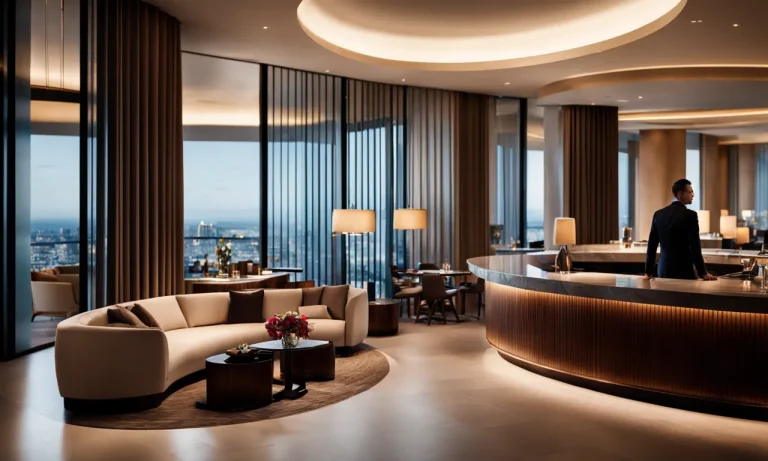Traveling can be a great adventure, but it can also be expensive. One of the biggest expenses when traveling is food. Eating out for every meal can quickly add up, so many travelers wonder if they can cook in their hotel rooms to save money.
If you’re short on time, here’s a quick answer to your question: Yes, you can cook in a hotel room, but it depends on the hotel’s policy and the equipment you use.
In this article, we’ll provide a comprehensive guide to cooking in a hotel room. We’ll cover the different types of hotel cooking equipment, hotel policies on cooking, the safety concerns of cooking in a hotel room, and some easy recipes you can make with limited equipment.
So, whether you’re a budget traveler looking to save money on food or just want to enjoy a home-cooked meal while on the road, keep reading to learn everything you need to know about cooking in a hotel room.
Types of Hotel Cooking Equipment
When it comes to hotel cooking, there are various types of equipment that can be used. Some hotels provide basic appliances such as microwaves, mini-fridges, and coffee makers, while others may offer more advanced equipment such as hot plates, portable induction cooktops, electric skillets, and slow cookers.
Here’s a comprehensive guide to the different types of hotel cooking equipment:
Microwaves
Microwaves are a common appliance found in hotel rooms. They are great for reheating leftovers or cooking simple meals such as popcorn, oatmeal, or frozen dinners.
Keep in mind that not all hotels provide microwaves, so it’s always a good idea to check with the hotel before booking.
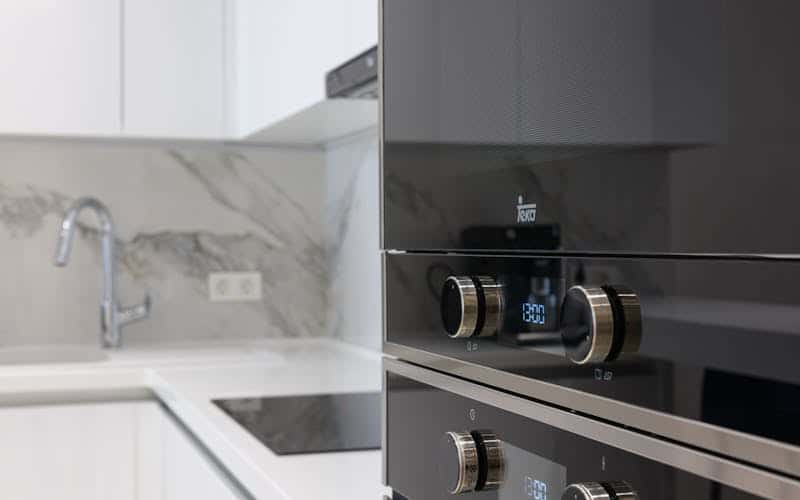
Mini-fridges
Mini-fridges are another basic appliance that can be found in most hotel rooms. They are perfect for storing snacks, drinks, and small food items.
Some mini-fridges also come with a small freezer compartment, which can be useful for storing ice or frozen meals.
Coffee makers
Coffee makers are a staple in most hotel rooms, and they are perfect for making a quick cup of coffee or tea in the morning.
Some hotels provide basic coffee makers that use coffee pods, while others may offer more advanced machines such as Keurigs or Nespressos.
Toasters
Toasters are not as common as other appliances in hotel rooms, but some hotels may offer them upon request.
They are great for toasting bread, bagels, or English muffins for a quick breakfast or snack. You can even use these toasters to heat up some leftovers or take aways.
Hot plates
Hot plates are more advanced cooking equipment that can be found in some extended-stay hotels or Airbnb rentals.
They are perfect for cooking simple meals such as pasta or stir-fry. Keep in mind that not all hotels allow hot plates, so it’s important to check with the hotel before bringing one.
Portable induction cooktops
Portable induction cooktops are becoming more popular in extended-stay hotels or Airbnb rentals.
They are energy-efficient and safer than traditional hot plates because they only heat up when a magnetic pot or pan is placed on them. They are perfect for cooking more complex meals such as steak or fish.
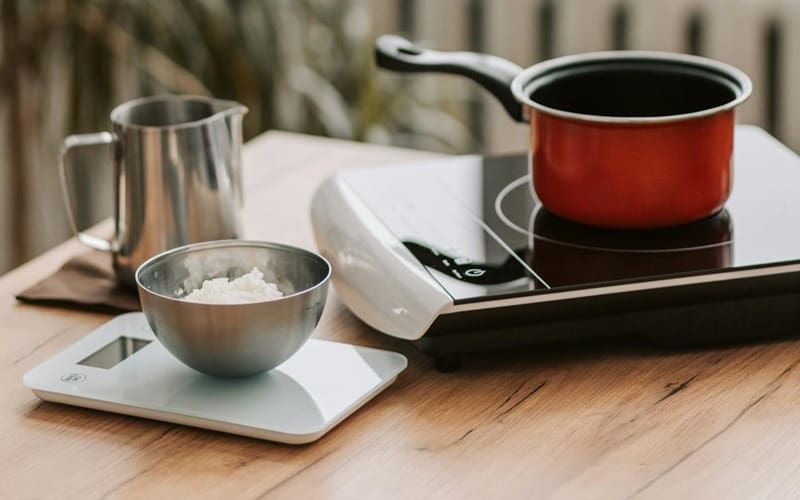
Electric skillets
Electric skillets are another advanced cooking equipment that can be found in some extended-stay hotels or Airbnb rentals.
They are great for cooking larger meals such as casseroles or stews. Keep in mind that not all hotels allow electric skillets, so it’s important to check with the hotel before bringing one.
Slow cookers
Slow cookers are perfect for making meals such as chili or pulled pork while you’re out exploring the city.
They are energy-efficient and can cook meals for several hours while you’re away. Some extended-stay hotels may provide slow cookers upon request.
Hotel Policies on Cooking
If you’re planning to stay in a hotel and wondering whether or not you can cook in your room, the answer is not always straightforward.
Every hotel has its own policies when it comes to cooking in their rooms, and it’s important to check with them before you start boiling water or frying eggs.
Check the hotel’s website or call ahead
Before booking your hotel room, take some time to check their website or give them a call to inquire about their policies on cooking.
Some hotels may have restrictions on the type of cooking equipment allowed in the rooms, while others may prohibit cooking altogether. It’s better to be safe than sorry, so make sure you know the rules before packing your pots and pans.
Be aware of fire codes
Hotels have strict fire codes that must be followed to ensure the safety of their guests. When cooking in your hotel room, you need to be aware of these codes and take precautions to prevent fires.
For example, you should avoid using portable stoves or hot plates that don’t have automatic shut-off features.
Additionally, you should never leave cooking equipment unattended, and you should always use the ventilation system in the room to avoid setting off smoke alarms.
Use equipment safely
If the hotel allows cooking in their rooms, they may provide some basic kitchen equipment like a microwave or mini-fridge. If you’re bringing your own equipment, make sure it’s safe to use and won’t damage the hotel room.
For example, you should avoid using charcoal grills or anything that produces an open flame. Always use equipment on a sturdy surface and keep it away from any flammable materials.
Clean up after yourself
One of the most important things to remember when cooking in a hotel room is to clean up after yourself. You don’t want to leave a mess for the hotel staff or the next guest.
Make sure to dispose of any food waste properly, wipe down surfaces, and do your dishes. If you need extra cleaning supplies, don’t hesitate to ask the hotel staff.
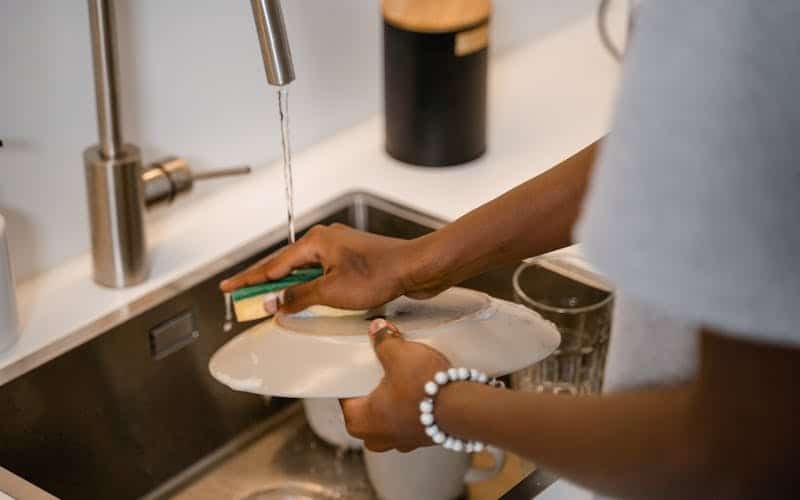
Safety Concerns of Cooking in a Hotel Room
If you’re planning to cook in your hotel room, it’s important to be aware of the safety concerns involved. Here are some of the most important things to keep in mind:
Fire hazards
Cooking in a hotel room can be risky because of the potential for fire hazards. Hotel rooms are often small and confined spaces, and the use of cooking appliances can increase the risk of fire. To minimize the risk of fire, be sure to follow all safety guidelines for your cooking appliance and never leave your cooking unattended.
It’s also important to be aware of what you’re cooking. Grease fires can be particularly dangerous, so avoid cooking with high-fat foods or deep-frying in your hotel room.
Food safety
Another important consideration when cooking in a hotel room is food safety. Without proper storage and cooking facilities, it can be difficult to ensure that your food is safe to eat.
If you’re planning to cook in your hotel room, be sure to bring along a mini refrigerator to store perishable items. Additionally, make sure to wash your hands and cooking surfaces thoroughly to prevent the spread of bacteria.
Ventilation
Finally, ventilation is an important consideration when cooking in a hotel room. Without proper ventilation, cooking can generate smoke, steam, and other airborne particles that can make your room uncomfortable or even hazardous to your health.
If your hotel room doesn’t have a built-in ventilation system, consider opening a window or using a fan to help circulate the air.
Remember, cooking in a hotel room can be a convenient and cost-effective way to enjoy home-cooked meals while traveling. However, it’s important to prioritize safety and take the necessary precautions to protect yourself and your fellow guests.
Easy Recipes to Make in a Hotel Room
Traveling can be a great way to explore new places, experience different cultures and taste new foods. However, eating out for every meal can be expensive and unhealthy.
If you’re staying in a hotel room, you may be wondering if you’re allowed to cook your own meals. The answer is, it depends on the hotel’s policy.
Some hotels allow guests to cook in their rooms, while others do not. It’s important to check with the hotel before you start cooking. If you are allowed to cook, here are some easy recipes to make in a hotel room.
Microwave Mug Meals
Microwave mug meals are a great option for cooking in a hotel room because they are quick, easy and require minimal equipment. All you need is a microwave-safe mug, a few ingredients and a microwave. Here are some ideas:
- Microwave scrambled eggs
- Microwave mac and cheese
- Microwave mug pizza
- Microwave oatmeal
No-Cook Meals
If you don’t have access to a microwave or don’t want to cook in your hotel room, no-cook meals are a great option. These meals require no cooking and can be assembled with just a few ingredients.
Here are some ideas:
- Caprese salad
- Veggie wraps
- Greek yogurt with fruit and granola
- Cold sandwiches
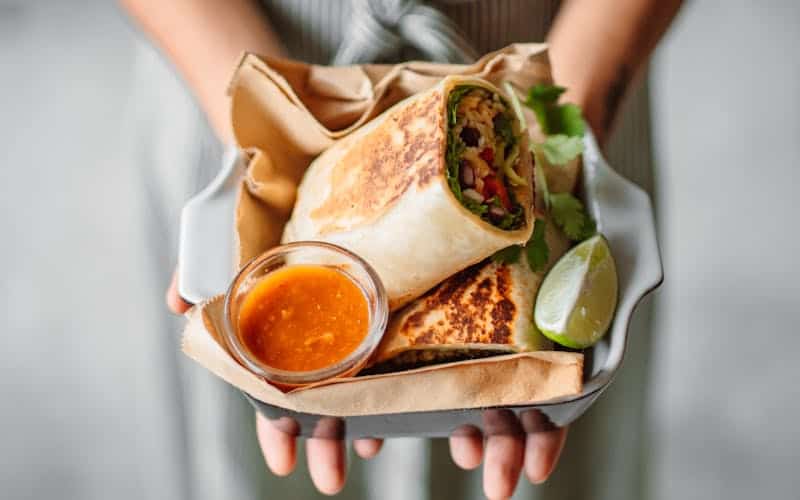
One-Pot Meals
If you have access to a stove or hot plate, one-pot meals are a great option for cooking in a hotel room. These meals require only one pot or pan, which means less cleanup.
Here are some ideas:
- Cheesy pasta
- Chicken and rice
- Beef stir-fry
- Vegetable soup
Slow Cooker Meals
If you have a slow cooker or crockpot, you can prepare meals in the morning and let them cook all day while you are out exploring. When you return to your hotel room, dinner will be ready. Here are some ideas:
| Meal | Ingredients | Cooking Time |
|---|---|---|
| Chili | Ground beef, beans, tomatoes, chili powder, onion, garlic | 8 hours on low |
| Chicken and vegetables | Chicken breasts, carrots, potatoes, onion, garlic, chicken broth | 6-8 hours on low |
| Beef stew | Stew meat, potatoes, carrots, onion, garlic, beef broth | 8 hours on low |
Remember to always check with the hotel before cooking in your room. If cooking is allowed, be sure to clean up after yourself and follow all safety guidelines. Happy cooking!
Conclusion
Cooking in a hotel room can be a great way to save money and enjoy a home-cooked meal while traveling. However, it’s important to check with the hotel’s policy and use equipment safely to avoid any safety hazards.
With the right equipment and a little creativity, you can make delicious meals in your hotel room. So, next time you’re on the road, consider cooking in your hotel room and enjoy the savings and convenience it brings.
We hope this comprehensive guide has been helpful in answering your questions about cooking in a hotel room. Safe travels and happy cooking!




